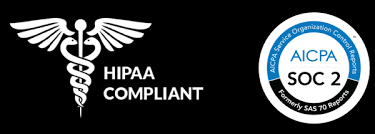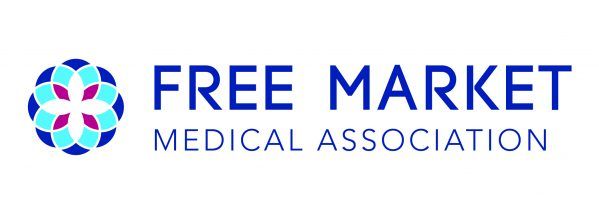Understanding Fiduciary Responsibility in a Self-Funded Health Plan

Self-funded health plans are a popular choice among employers seeking to manage the costs and benefits of employee health coverage directly. However, this approach comes with significant legal and ethical responsibilities. Central among these is the fiduciary responsibility associated with managing a self-funded health plan. Employers must act prudently and in the best interest of plan participants while navigating a complex regulatory landscape. This article explores the meaning, scope, and implications of fiduciary responsibility in self-funded health plans.
What is Fiduciary Responsibility?
In the context of a self-funded health plan, fiduciary responsibility refers to the legal obligation to act in the best interest of the plan’s participants and beneficiaries. This duty is governed primarily by the Employee Retirement Income Security Act (ERISA), a federal law that sets standards for the administration of private employee benefit plans.
Fiduciaries under ERISA are individuals or entities that exercise discretionary authority over plan management, assets, or administration. For a self-funded health plan, this typically includes the employer, plan administrators, and any third-party administrators (TPAs) with discretionary authority.
Key Fiduciary Duties
ERISA outlines specific fiduciary duties to ensure the integrity and proper management of self-funded plans. These include:
1. Duty of Loyalty
Fiduciaries must act solely in the interest of the plan participants and beneficiaries, ensuring that decisions benefit them rather than the fiduciary’s own interests or other parties.
2. Duty of Prudence
This duty requires fiduciaries to act with care, skill, and diligence. Decisions must be made based on thorough research, professional expertise, and sound judgment.
3. Duty to Follow Plan Documents
Fiduciaries must administer the plan according to its governing documents, provided these align with ERISA and other applicable laws.
4. Duty to Diversify Plan Investments
While this duty is more relevant to retirement plans, health plan fiduciaries must ensure that funds are used appropriately to avoid unnecessary financial risks.
5. Duty to Avoid Prohibited Transactions
Fiduciaries must avoid conflicts of interest and prohibited transactions, such as using plan assets for personal gain or engaging in deals with disqualified persons.
Examples of Fiduciary Actions in Self-Funded Plans
- Selecting a Third-Party Administrator (TPA): Employers must carefully evaluate and choose a TPA to manage claims processing, network negotiations, and other administrative tasks. The selection should be based on competence, cost-effectiveness, and the TPA’s ability to serve the best interests of participants.
- Monitoring Plan Expenses: Fiduciaries must regularly review the plan’s financial statements and expenses to ensure that funds are being used effectively and that administrative fees are reasonable.
- Ensuring Compliance: Maintaining compliance with ERISA, the Affordable Care Act (ACA), and other relevant regulations is a core fiduciary duty. This includes timely filing of required reports, such as Form 5500, and adherence to nondiscrimination rules.
Potential Liabilities for Breach of Fiduciary Duty
Failure to uphold fiduciary responsibilities can lead to severe consequences, including:
- Personal Liability: Fiduciaries may be held personally liable for losses resulting from breaches of duty.
- Civil Penalties: ERISA authorizes civil penalties against fiduciaries who fail to meet their obligations.
- Criminal Penalties: In cases of willful misconduct, fiduciaries may face criminal charges.
- Lawsuits: Plan participants or the Department of Labor (DOL) can sue fiduciaries for breaches of duty.
Best Practices for Managing Fiduciary Responsibilities
To minimize risks and ensure compliance, fiduciaries should adopt the following best practices:
1. Education and Training
Stay informed about ERISA and other regulations that govern self-funded plans. Regular training can help fiduciaries understand their roles and responsibilities.
2. Document Decision-Making Processes
Maintain clear records of all decisions related to the plan, including the rationale and supporting data. Documentation provides evidence of prudent decision-making in the event of a dispute or audit.
3. Engage Qualified Professionals
Partner with experienced TPAs, legal counsel, and financial advisors to navigate the complexities of self-funded plan administration.
4. Conduct Regular Plan Audits
Periodic audits help identify and address compliance issues, inefficiencies, and potential risks.
5. Establish a Fiduciary Committee
A committee can share the responsibilities of plan oversight, providing checks and balances to ensure decisions align with fiduciary duties.
The Role of the Department of Labor
The DOL actively enforces ERISA’s fiduciary provisions, conducting audits and investigations to ensure compliance. Employers should be prepared for potential audits by maintaining meticulous records and adhering to best practices.
Why Fiduciary Responsibility Matters
Upholding fiduciary responsibility is essential not only for legal compliance but also for fostering trust among employees. A well-managed self-funded health plan demonstrates an employer’s commitment to the well-being of its workforce. Moreover, it helps prevent financial losses and reputational damage that can arise from mismanagement.
Conclusion
Fiduciary responsibility in a self-funded health plan is a serious and complex obligation. Employers and other fiduciaries must act with diligence, loyalty, and transparency to protect the interests of plan participants and ensure regulatory compliance. By adopting best practices and leveraging expert guidance, fiduciaries can navigate their responsibilities effectively while delivering valuable health benefits to employees.



